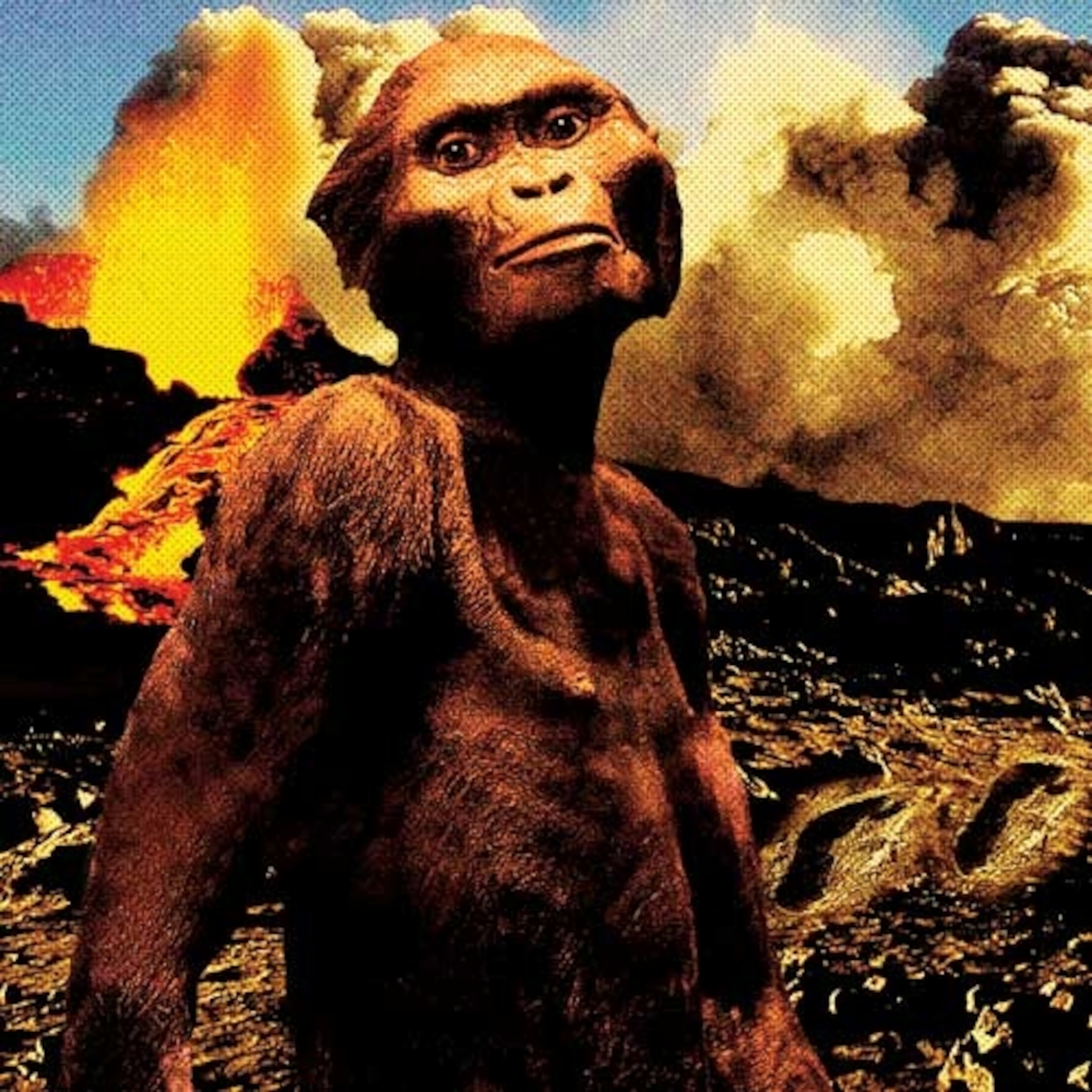Text by Contributing Editor Laurence Gonzales, Deep Survival
Lucy had a small brain, tiny bones, and wasn’t even four feet tall. But Lucy, the australopith, was a survivor.
Many years ago, I read of a discovery that set my mind on fire. An American paleoanthropologist named Donald Johanson had discovered the bones of a woman who lived almost 3.2 million years ago, making her our earliest known ancestor. The scientific community was equally excited by the find because it proved that people walked upright long before they evolved the large brains characteristic of modern humans. This was a big deal because the most famous researchers of human evolution, Louis and Mary Leakey, believed that we had developed our modern brains before we walked upright. But Lucy, as the new fossil was named, proved beyond a shadow of a doubt that the opposite was true.
The prints show one large australopith, a smaller one, and a third who walked in the footprints of the first. The smaller set of prints was made in such a way as to suggest that the person might have been carrying something. Because of what we know about how humans and other apes behave,
